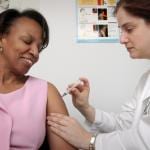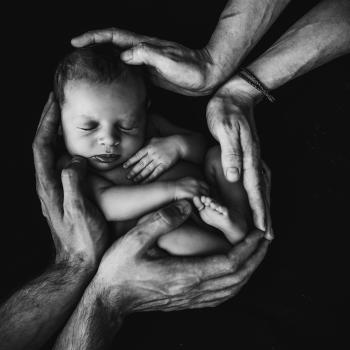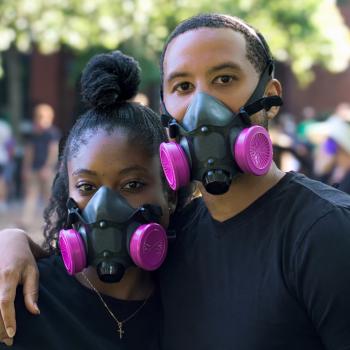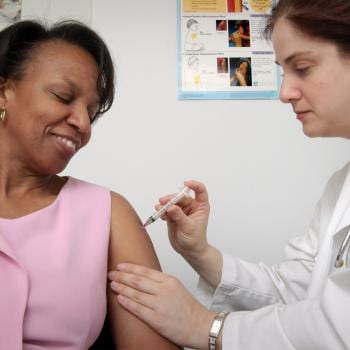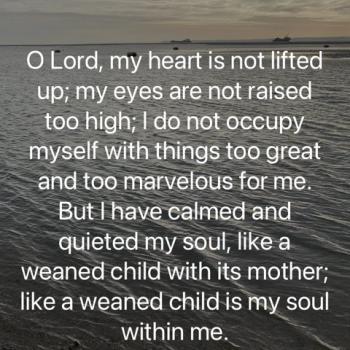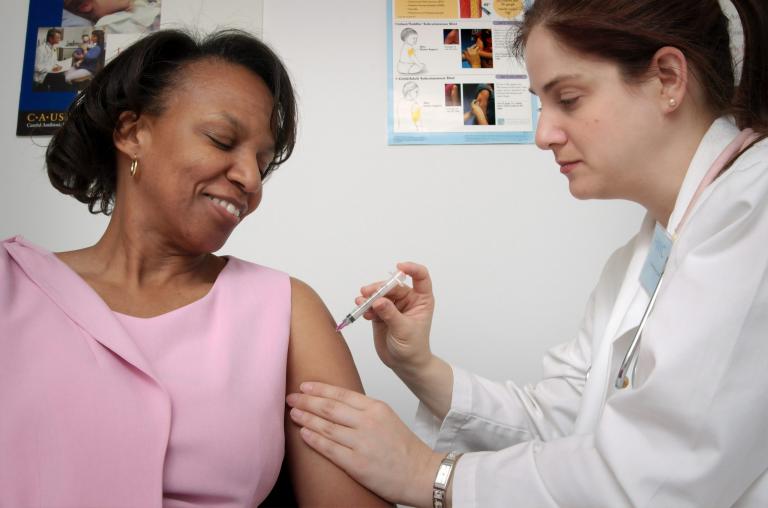
Some Christians do have genuine concerns about vaccination which I will address in this article. I wish to appeal to believers to consider carefully these matters rather than reflexly reject the COVID-19 vaccines.
This is a long article so you can download a PDF version for printing
No babies were aborted in order to make COVID-19 vaccines. But a human cell line originating from an embryo was used (HEK293). God turns everything around for good. Do share with those with ethical doubts. https://t.co/khVDoIXKve
— Adrian Warnock (@adrianwarnock) January 16, 2021
On social media there are a lot of myths about these vaccines, many of which fall into the category of untruths. I recently wrote about how Christians must stop lying about COVID-19 which is highly relevant to this point.
Since this article was published Tim Keller posted on Facebook that he had taken the vaccine. Honestly the tone of some of the criticism he received from that brings shame to the name of Christ since one assumes most of his readers will be Christians. I get that some people have genuine concerns and this whole article exists to try and help them think throughl that but let’s be more kind and respectful to each other please. Here’s Keller’s post followed by the contents of this article:
Table of Contents
1. Ingredients of COVID-19 Vaccines
2. Vaccination is not anti-Christian
3. Does God promise to protect Christians from COVID-19?
4. What are human cell lines (e.g. HEK293)?
5. How do Christians view human cell lines?
6. An alternative perspective
7. Conclusion
1. Ingredients of COVID-19 vaccines
Some are claiming that if you inject the COVID-19 vaccine into you then you are injecting aborted babies. There are even videos and links circulating on social media that claim to show ingredients of the vaccines and that one of them is fetal tissue. Some of these reports are falsified. The idea that the vaccines contain as an ingredient aborted body parts of babies is simply and completely untrue.
You can confirm the ingredients for yourself by looking at sections 2 and 6.1 of the following UK official documents for the three vaccines being rolled out: Pfizer, Moderna, and Astra-Zeneca. Note that none of the ingredients listed in 6.1 are made from aborted baby parts. In the case of Astra-Zeneca there is a note in section 2 that HEK293 cells are involved in the manufacture of the vaccine itself, and more of that later in the article. But even that does not mean that those cells are contained in the actual vaccine. There is an extensive purification process which:
“. . .consists of lysis of the production bioreactor cell culture, nuclease digestion of the host cell DNA, clarification and further processing through a series of purification/concentration steps to remove process-related impurities and then formulation with excipients and aseptic filtration.” Section II.2 UK PAR
No aborted babies are contained in our COVID-19 vaccines and no babies have been aborted for the purpose of developing or manufacturing COVID-19 vaccines.
Many might not need to go any further, but some might be interested to understand the detail of the use of certain cell lines in the development, testing, and in some cases manufacturing process and their origins. Some people who believe abortion is morally wrong will have valid concerns about this. If you have heard of HEK293 and that is an issue for you ethically, then continue reading and I will try and explain the situation and why, on balance, I personally do not have an objection to the use of these vaccines.
I certainly do not want to raise any unnecessary concerns, and so if these complex ethical questions are not important to you then feel free to simply leave the article here knowing that the vaccines do not include the parts of aborted babies.
No babies were aborted in order to make COVID-19 vaccines
Dr Albert Mohler points out:
“there is no activity related to abortion in the present that is in any way associated with the use of these vaccines.” READ MORE
2. Vaccination itself is not anti-christian
In another article Mohler points out the long history of vaccination within Christian circles, and recognises that sometimes vaccines can cause harm to some people. One of the leading heroes of Western Evangelicalism is Jonathan Edwards. In 1758 he took an early form of vaccination (which pre-dated Edward Jenner’s discovery), thereby showing that he ethically approved of the concept. We sometimes forget how old the idea of using vaccines to prevent disease is.
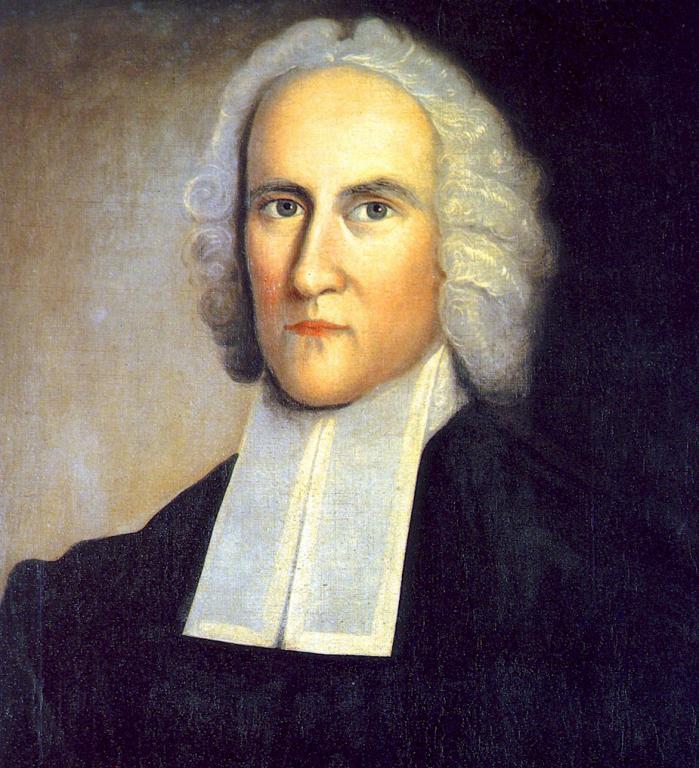
Sadly Edwards also died a few days later of side effects caused by this vaccination. Thus also proving that vaccinations can sometimes have side effects. This story therefore reminds us that we should certainly not assume that vaccines will never cause harm. In particular we should always show compassion to the family members of people who have had life altering medical issues that they believe are caused by vaccination. Sometimes these events may have been a co-incidence and it is often impossible to prove causality. But some parents who have experienced a healthy child develop severe illness after a vaccination have often found the medical community and others simply dismiss their concerns. We should show understanding to these families and not be judgmental, labelling them as “anti-vaxers”. Let’s not heap insults onto the pain of these families whose suffering is very real, and who often feel alone.
Sadly all medical interventions have risks and benefits attached. Fortunately the modern vaccines are carefully studied in tens of thousands of patients, and the risk of serious side effects do seem very low indeed. But the risks can never be absent entirely. All doctors know that even common medicines that you can buy over the counter can sadly sometimes cause serious complications.
We should not be overly alarmed, however, by milder side effects such as a swollen arm, fever, feeling unwell as these are to be expected and suggest that the body is responding to the vaccine as we want it to. Remember the whole idea of vaccines is to trick the body into thinking it is sick. No wonder we sometimes feel unwell after a vaccine.
COVID19 infection, antibodies and vaccination – video explanation
3. Does God promise to protect Christians from COVID-19?
Some Christians refuse all vaccines on the basis that vaccinations are somehow not natural or on the basis that they believe God will protect them from diseases. Some argue that God determines how long we should live so we cannot “save” our lives. But we do things all the time to try and reduce our risk of disease or death.
A favourite passage which sometimes gets cited by Christians about the current pandemic is Psalm 91
He who dwells in the shelter of the Most High
will abide in the shadow of the Almighty.
I will say to the LORD, “My refuge and my fortress,
my God, in whom I trust.”For he will deliver you from the snare of the fowler
and from the deadly pestilence.
He will cover you with his pinions,
and under his wings you will find refuge;
his faithfulness is a shield and buckler.
You will not fear the terror of the night,
nor the arrow that flies by day,
nor the pestilence that stalks in darkness,
nor the destruction that wastes at noonday.A thousand may fall at your side,
ten thousand at your right hand,
but it will not come near you.
You will only look with your eyes
and see the recompense of the wicked.Because you have made the LORD your dwelling place—
the Most High, who is my refuge
no evil shall be allowed to befall you,
no plague come near your tent.For he will command his angels concerning you
to guard you in all your ways.
On their hands they will bear you up,
lest you strike your foot against a stone.
You will tread on the lion and the adder;
the young lion and the serpent you will trample underfoot.“Because he holds fast to me in love, I will deliver him;
I will protect him, because he knows my name.
When he calls to me, I will answer him;
I will be with him in trouble;
I will rescue him and honor him.
With long life I will satisfy him
and show him my salvation.”
This beautiful psalm is intended as a comfort to us that we do not face our problems alone. We should take care not to misuse or misinterpret it:
The psalm itself poses a danger. Because its assurance of security is so comprehensive and confident, it is especially subject to the misuse . . . of turning faith into superstition.
Mays, J. L. (1994). Psalms (p. 297). Louisville, KY: John Knox Press.
This psalm is not a magical promise that in this world no Christian will suffer from infectious diseases any more than it is a promise that the believer who falls off a cliff or throws himself off a building will always be held up by angels so that he is protected. The devil quotes verses from this Psalm to Jesus in the wilderness, tempting him to demonstrate the protection these verses speak of. Jesus reply was curt:
Jesus said to him, “Again it is written, ‘You shall not put the Lord your God to the test.’” (Matthew 4:7)
We also should not presume upon the protection of God and use it as an excuse not to take steps to protect ourselves. To do so could be to test God in the exact same way Satan urged Jesus to do.
The protection offered in this psalm is not absolute. It is a spiritual and mental protection that is on offer, and an ultimate spiritual and eternal protection. The true concept is similar to one of the most famous verses in the Bible which appears at first glance to promise we will not ever die. The truth is rather that even the end of our earthly life is not final death for us as we have eternal life:
“For God loved the world so much that he gave his only Son, so that everyone who believes in him may not die but have eternal life” (John 3:16, Good News Bible)
Christians do die. It’s just that when we do our death is not permanent.
Psalm 91 rightly used gives great comfort and hope but our hope is not for our a trouble and sickness free today but for a glorious eternity to come. As Jesus himself promised
“I have told you these things, so that in me you may have peace. In this world you will have trouble. But take heart! I have overcome the world.” (John 16:33)
The promises of God’s protection does not remove from us the need to act responsibly, such as by wearing a seat belt when we go in a car. The use of medical science would fall under a similar category. We should not presume that God will shield us from the consequences of living in a fallen broken world. In the time of the New Testament there was a lot of miraculous healing power at work but even the Apostles were not immune to sickness, nor were they able to heal everyone. Paul not only traveled with a personal Physician, Luke, but advocated the use of basic medical remedies to improve his friend’s health:
No longer drink only water, but use a little wine for the sake of your stomach and your frequent ailments. (1 Timothy 5:23)
The idea that God will protect all true faith-filled Christians from COVID-19 could be called an over-realised eschatology for those who like theological terms. It is more typically an error seen among Charismatics. Since my theological roots dig deep into that stream I am familiar with its errors, but also with the errors of the other theological stream I have been as much influenced by- the Reformed. As a reformed charismatic I have to try to avoid the excesses and weakness of both perspectives!
On the Reformed side there can be an over-emphasis on the sovereignty of God that leads to passivity and may be an alternative reason some turn down vaccines or other medical help. Mohler critiques that perspective as follows:
“Some might say, “I believe in the sovereignty of God, and if God wants me to have this virus then he will give me the virus. I don’t need medical intervention because I trust God.” That kind of logic, if pressed to its logical conclusion, however, is untenable—we wouldn’t treat any sickness, cancer, or injury. Medical treatment is an extension of God’s common grace and Christians have always understood this. That is why, throughout history, where you found Christians you found hospitals and the church treating the sick. Thus, it is not wrong for Christians to take measures to avoid getting sick or coming down with the virus. It is not wrong to take the vaccine against COVID-19.” Read More

I include these arguments for completeness and to ensure that every Christian realises at the outset of this discussion that vaccination is a life or death issue for believers too. Even if you believe that you yourself are not in a high risk group for death, others around you are. I am one such person since my blood cancer and its treatment has severely damaged my immune system so that I cannot make sufficient antibodies to fight off infection or in response to a vaccine. If you take a vaccine you might save my life by not giving me COVID-19.
Vaccination is not just an act of self preservation. It is an act of love towards our neighbours to do them good.
To fail to act in order to protect those who are more vulnerable than ourselves could itself constitute a sin of omission as we might be the direct cause of harm that is preventable. This is the same argument for social distancing and wearing masks of course. By taking steps to prevent ourselves getting and transmitting COVID-19 we are saving the lives of others less fortunate.
Taking a vaccine is an act of love to others. Precious people made in the image of God are dying from COVID-19. YOU can help stop this.
But if anyone has the world’s goods and sees his brother in need, yet closes his heart against him, how does God’s love abide in him? Little children, let us not love in word or talk but in deed and in truth. (1 John 3:17-18)
Most Christians do not reject medicines and medical help in general. There is no reason to reject vaccination wholesale as a non-Christian concept. God has given humans wisdom to create medicines and vaccines and we can accept them as coming from the common grace that he lavishes on all of us whether we follow him or not.
Some Christians do not reject the concept of vaccination altogether but instead reject certain vaccines for a more specific reason that we will now turn to.
4. What are human cell lines?
Having said all this, some people have legitimate concerns about human cell lines that have been growing in laboratories for decades. If this is not an issue for you there is no need to keep reading…well done for making it this far!
This section explains the science, but you can also skip this bit to read how Christians view the use of these cell lines.
Scientifically it is crucial for a number of stages in research, development, testing, and in some cases even the manufacture of certain types of vaccine for human-like cells to be used.
Historically it was actually very difficult to get human cells to grow in a laboratory setting, in effect to be immortal, or to keep multiplying for decades. Many attempts were made to genetically engineer human cells to change them so that they can be reliably grown and used for all sorts of experiments.
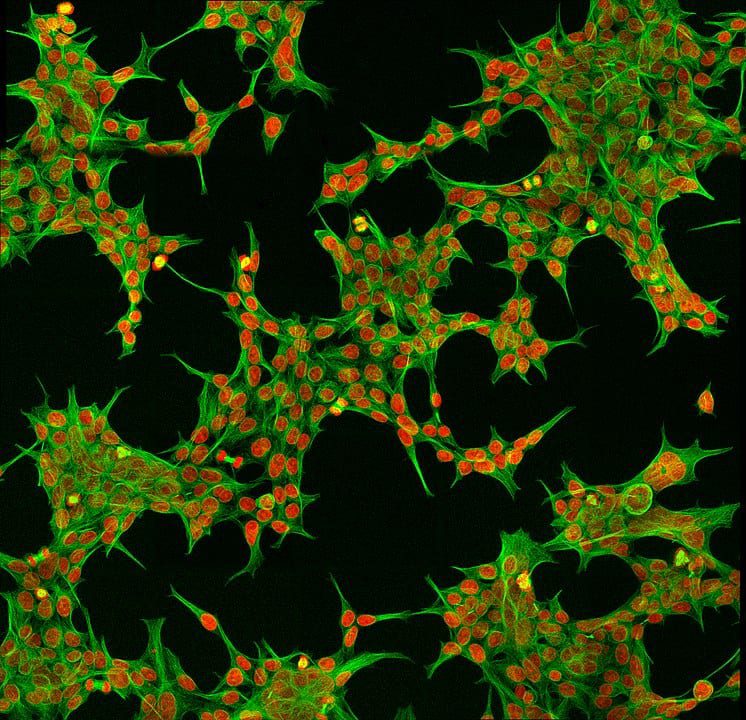
Two main sources of the human cells they attempted to transform in this way were cancer cells (which obviously behave in a not fully human way), and human embryos. Importantly this is not the same as embryo research as the idea was not to grow human embryos in a lab but rather to create a sample of cell tissue that could be grown in a laboratory for decades and used in research.
Because it has been so hard to produce such cell lines historically there are relatively few efforts today to recreate similar cell lines to those which have worked well for decades. Science flourishes on predictability and when thousands of experiments have been done using the same cells it makes a lot of sense to keep using them. It will be hard to persuade scientists to re-create cell lines that work and are the foundation for so many medical developments. This is unfortunate because in theory it would be possible to attempt to create new cell lines from entirely ethical sources such as umbilical chord stem cells.
The cell lines used today were created a long time ago
One of the most widespread cell lines used in one way or another with almost all medical developments whether they be vaccines or medicines is a cell line called HEK293 or FreeStyle293F.
This cell line has been used at least in the development or testing phase of almost all COVID-19 vaccines. Here is a summary of how the various vaccines have used these cells.
- The COVID-19 spike protein gene was grafted into HEK293 cells allowing them to produce copies of this protein allowing it to be further studied. The knowledge led directly to vaccine development and these cell lines were used in developing and testing all the vaccines.
- The Pfizer and Moderna vaccines do not use the HEK293 cells as part of their production process
- In the case of the AstraZeneca / Oxford vaccine as noted in their official information, HEK293 cells are used to grow the vector virus that is inactivated and ultimately becomes the vaccine. Thus the cells are not in the vaccine but are part of the production process.
Some Christians make a moral distinction between those vaccines (Pfizer and Moderna) where the testing or development requires HEK293 and those where the manufacture process requires them. Jonathan Imbody explains this position in a piece for the Christian Medical and Dental Associations. Randy Alcorn also outlines the reasoning why some pro-lifers would accept the Pfizer or Moderna vaccines but not the Oxford-AstraZeneca one.
Since the cell lines are used in both cases to me it seems like splitting hairs or straining at gnats to make such a distinction. The moral equivalence of both types of vaccine is well argued with references to scientific papers outlining the use of HEK293 cell lines in COVID vaccines by Stacy Trasancos.
The professor who made the original HEK293 cell line, from which all the cells used today are directly descended, cannot remember where this originating embryo came from. The reason the cell line is called 293 is because that was his 293rd experiment. Some of these experiments apparently used cells from miscarriages and some from abortions. Crucially the decision to carry out the abortion (if indeed HEK293 came from an abortion) was entirely separate from the decision to attempt to make a tissue culture out of the cells.
Abortions were not carried out in order to create cell lines. Cell tissues were created via genetic engineering after the abortion had occurred.
In order to make the cells essentially immortal genetic engineering was involved, and so the resultant cell culture line is no longer a pure human tissue. Use of the cell line is not considered embryo research. The cells could never grow to become a human being.
Because these cells are so predictable and amenable to further genetic alterations they have been used in huge numbers of experiments. A recent moral report on vaccines explains the impact of these cells:
“58,094 scientific papers have already been published that are associated with HEK293 alone—and they were instrumental in the development of numerous drugs and medical treatments. For example, HEK293 cells were used to study the human dopamine receptor, and many of the antipsychotic drugs used to treat mental illnesses like schizophrenia and bipolar disorder would not have been discovered without them” Read More
The scientific knowledge that has come about through the use of these cells is therefore everywhere. It would be almost impossible to avoid taking any vaccine or medicine that had been tested on this cell line, or whose development was contributed to by knowledge obtained from using them.
We all benefit from an abortion which happened decades ago in which we had no part.
This quote summaries the position clearly and explains why hoping that scientists will begin using alternatives are currently unrealistic:
“HEK293 is an established cell line. What this means is that these cells have been used and studied by biologists for nearly half a century. They are well characterized, and they have been validated for their safety. I point this out because it helps explain why it is unheard of for a vaccine manufacturer to seek out new human fetal cells from a recent abortion. Such novel fetal cells would be uncharacterized, unvalidated, and unapproved by regulatory agencies like the U.S. Food and Drug Administration (FDA) for human vaccine production. Why waste time, effort, and money to obtain, characterize, and validate new human fetal cells when the classic fetal cell lines obtained decades ago like HEK293 are readily and cheaply available?” Read More
It should be noted that a new cell line was created in 2015 in China, presumably so they didn’t have to rely on imports. But this is very much the exception. New embryos taken from abortions are not required for vaccine development or testing.
We cannot go back into history and undo the creation of HEK293 or its adoption as perhaps the best understood and standardised tissue culture in use in science. It is important to stress that now this cell line exists it is not necessary for other abortions to be undertaken to create such cell lines.
Many Christians are opposed to ongoing embryonic research. And in response to ethical objections a ban was instituted in the USA by the Trump administration. It is interesting to note that the ongoing use of tissue like HEK293 was specifically excluded from that ban. This is due to the fact that the tissue has been around for so long, and the fact that the modifications to the tissue mean that it should not be considered fully human.
Roman Catholic theologicans typically take a firm anti-abortion stance. In 2017 an official Vatican statement argues
“the cell lines currently in use are very distant from the original abortions and no longer imply that bond of moral cooperation”.
The National Catholic Bioethics Center explains:
“Any product grown in these or other cell lines derived from abortions, therefore, has a distant association with abortion. The cells in these lines have gone through multiple divisions before they are used in vaccine manufacture. After manufacture, the vaccines are removed from the cell lines and purified. One cannot accurately say that the vaccines contain any of the cells from the original abortion.”
5. How do Christians view human cell lines?
Many Christians will believe that abortion is wrong. One of the most widely used passages to support the view that human life exists before birth and should therefore be preserved as precious is from Psalm 139:
For you created my inmost being;
you knit me together in my mother’s womb.
I praise you because I am fearfully and wonderfully made;
your works are wonderful,
I know that full well. . .
Your eyes saw my unformed body;
all the days ordained for me were written in your book
before one of them came to be. (Psalm 139:13-16)
But if you disagree with abortion this does not automatically mean that it is wrong to use vaccines that have a remote link to cells taken from what may have been an aborted baby. The cells are not part of the baby’s “remains” as some have emotively described them.
The cells are altered genetically to behave in a different way, and there is no way that these decades old cells could ever produce an embryo. We cannot undo the past. And there are many other ways we benefit from dubious decisions made by others in the past. We walk on roads that perhaps hundreds of years ago may have been built by slaves or wealth from the slave trade. Certainly the rich status of Western countries today is directly related to their exploitation of other nationalities via enslavement, empire, invading and displacing indigenous peoples. Am I therefore sinning by simply walking down the street and enjoying the many benefits of living in the UK?
Christy Hemphill, one of the moderators of the Biologos Forum expands on this point:
The ethical arguments calling for avoiding the fetal cell vaccines are similar in some ways to arguments for reparations for slavery, though you would never hear the people who are so concerned about the fetal cell lines saying that White people should be denied anything that benefits them in the present because sins were committed in the past and their wealth is birthed from injustice.
Basically something immoral happened in the past and we have an opportunity in the present to benefit from a long causal chain that could be traced back to that immoral event. Does that make benefiting wrong? We benefit from land that was violently stolen from indigenous people. We benefit from companies and industries and social systems that were built on the backs of slave labor and colonial imperialism and oppression. Heck, we benefit from manufacturing practices that currently enslave children and pollute the world to the point of killing poor people who have to live in the degraded environments. Read More
It can be very hard to untangle the extent to which we benefit personally and individually from the undoubtably sinful acts of those who have gone before us. We should be mindful of such things, and there is a moral duty on us to act in ways that demonstrate repentance for such historical corporate sins such as racism.
We certainly should not celebrate historical sinful acts. But it is impossible for us to somehow avoid the benefits that have come to us by the unjust actions that occurred in the past, and in many cases such injustices do persist today.
A similar position surely exists in the case of HEK293. We can grieve the fact that events happened in the past that we morally disapprove of, yet graciously and gratefully take part in the benefits which are huge and which we do not deserve.
A non-religious Patheos blogger explained this perspective well when they imagined how pro-lifers might instead of not talking about this, instead actually acknowledge the fact that the lives of aborted babies have benefited society. They suggested pro-lifers use it as a trigger to campaign not for more abortion but to abolish abortion and even suggested a slogan:
“Two murdered children have saved millions of lives across the globe. Isn’t it time we stood up for them, too? #abolishabortion”. Read More
Albert Mohler explains his own position with regards to COVID-19 vaccines as follows:
“We must condemn in the strongest of terms the use of any tissues from aborted human babies. That is a nonnegotiable issue for Christians as we consider medical advances and treatments. There are, however, complexities involved as Christians contemplate these incredibly serious moral questions.
Specifically, with the issue of the COVID-19 vaccine, Christians need to understand that no step in producing these vaccines had any direct involvement in an abortion of a single child. There is also the issue of proximity. The further you go in history, the harder it is to keep a clear line of culpability in morally significant events . . .
The vaccine’s structure relied upon the cell line of HEK-293, which originated with an aborted fetus . . . This is a tragedy of history. A horrifying wrong was done—but that does not mean that good cannot come from that harm, even as it is a good tainted by the realities of a sinful world. This idea is expressed, for Christians, as the doctrine of double effect . . . ” Read More
Double effect is defined as follows:
The theory that a moral agent is not to be held morally accountable for unintended and perhaps unavoidable ill side effects of an action or series of actions that is otherwise morally legitimate. Some ethicists add that the principle of double effect can only be invoked in situations in which the good intended in the action or series of acts is so significant that it outweighs the unintended evil side effect.
Grenz, S. J., & Smith, J. T. (2003). In Pocket Dictionary of Ethics (p. 29). Downers Grove, IL: InterVarsity Press.
It is not inconsistent to still take life saving vaccines that used these cell lines in order to rescue society from all the effects of the pandemic (the good effect) and believe the the initial abortion was wrong (the bad effect). We can’t undo the actions of the person who aborted that child, nor the scientists who made use of the tissues.
We can argue that the act of abortion was wrong, we can call for alternative cell lines to be created so that we do not need to remain dependent on lines that were made so long ago from a questionable moral source.
The vaccines have now been made, and we have no alternative course of action if we want to get COVID-19 under control than to take them. This does not need to imply we agree with that long-ago act.
This obviously touches on the whole notion of corporate guilt. Do I become guilty by association or by my own action? Is there a moral difference between the researchers using the product of an abortion and those involved in the abortion itself, the decision for which was taken separately? Do I really share any guilt by taking the vaccine at such a removed distance?
Joe Carter makes a similar argument about separating the consequences of a sinful action from the action itself, using the question of whether organ transplant from a murder victim would be acceptable:
If a doctor were to offer to transplant a kidney or heart from the murder victim into a Christian, we would likely not object . . . no one would say the Christian who received the organ was morally responsible in any way for the murder. Read More
The Bible is full of examples of where sin was turned around to lead to good outcomes. Rahab lied to protect the Israeli spies (see Joshua 2), yet was commended for being a woman of faith in Hebrews 11 and is included in the genealogy of Jesus. This has led to an interesting ethical dilemma of whether it is OK to lie for good motives.
A commonly referenced hypothetical example is of someone hiding Jews from Nazis in occupied Europe. If they knocked on the door and asked “do you have any Jews here?” is the sin of giving up your refugees to probable death greater than the sin of lying? Would lying even be a sin at all in such a situation?
When facing two bad choices should we weigh them both up and choose the least bad option? When thinking of this moral decision we must remember that the only alternative to taking the vaccine is Society continuing to suffer the economic effects of attempts to stem the tide of severe sickness and death caused by COVID-19.
We should not comfort ourselves by thinking other people will take the vaccine for us and we will benefit from their actions. That is just side-stepping our responsibility, and if we benefit from what we say is another’s moral error, how is that any different from us actually taking the vaccine to so benefit?
Sometimes the Bible is very clear that a sin was a sin but nonetheless God turns it around for his purposes. Bathsheba was also included in the genealogy of Jesus in Matthew 1 despite the fact that David committed adultery with her before murdering her husband. Despite his sin God called King David a man after his own heart.
Joseph understood how great good could come out of an evil act. His brothers left him for dead then sold him as a slave. And yet at the end of his life he said to them
You intended to harm me, but God intended it for good to accomplish what is now being done, the saving of many lives (Gen 50:20, NIV)
Here we see the sovereignty of God and not just a double affect but a double intention. The sinful intention remains sinful and the brothers are guilty of it. But somehow in the mystery of the way God in his providence restrains certain sins but allows others to happen, God was in some way working behind the scenes with a different intention altogether.
Without the actions of the brothers there would have been no saving of lives, the good deed which God was all along ordaining. In a similar way without the abortion of the baby which led to the formation of HEK293 cells we would not have COVID-19 vaccines which will save the lives of many.
God turns events that are morally wrong around to save the lives of others. We are not guilty of that abortion because our lives are saved by vaccines in just the same way that the Egyptians, who were saved by the wise planning of Joseph, were not responsible for the sin committed by his brothers, even though they directly benefited from the results of that sin.
Romans 8:28 states that “in all things God works for the good of those who love him, who have been called according to his purpose” (NIV). The story of Joseph shows us that all things includes all sins.
Now let’s go right to the heart of the Christian message. The gospel tells us that the death and resurrection of Jesus has obtained for us not a temporary saving of our earthly lives from a virus, but an eternal salvation of our souls from sin. Yet that very salvation simply could not have happened without the sin of those who betrayed Jesus and murdered him on the Cross. Jesus was sinned against, and yet also “gave himself for our sins to deliver us” (Galatians 1:4).
Because of his cruel death Jesus has vaccinated us against the power and penalty of the disease of sin. We are not contaminated with the sin of those who sent Jesus to his death simply by receiving His offer of salvation.
Without the greatest sin of all time, we could never have been saved.
God turns everything around for good. Joseph's brothers sold him as a slave. God used that act to save lives. So he can use an old abortion to defeat COVID-19 through vaccines. Without the greatest sin of all time we could never have been saved by Jesus. https://t.co/zErH9Mov3X
— Adrian Warnock (@adrianwarnock) January 16, 2021
I hope you have been convinced that great good can come from great sin. None of this means that we should be unconcerned about the moral peril of abortion. We should welcome those Christians such as Theresa Deisher who are trying to create vaccines from an alternative source.
But we live in an imperfect world, and the possible implication that we are approving of in some way a long-time ago moral act is surely vastly outweighed by the huge moral good in terms of lives saved and economic ruin reversed that accompany taking the vaccine.
In this “double effect” equation if we decide not to vaccinate we cannot undo the previous abortion and will not be preventing any new abortions, so will not be accomplishing anything. But if we instead choose to take COVID-19 vaccines we would be contributing to a much greater good.
In 2015 the Southern Baptists ethical commission addressed the use of vaccines that had been developed using cell lines that originated in embryos:
Clearly, the process by which these vaccines are made is not ethically ideal.
Therefore, we should continue to advocate for use of alternatives when available and for the development of future vaccines to be carried out by other means. . .
If the abortion was conducted in order to harvest tissues that were to be used for the vaccine, then it would clearly be immoral. But . . . the abortion was carried out for other reasons and the tissue was acquired post-mortem for the purpose medical research . . .
We believe the use of the vaccines is justifiable based on the fact that we cannot change the way the cell cultures were obtained, there are no available alternatives, and the effectiveness of the vaccines as a means of preserving life and preventing suffering is clear.
We certainly respect the opinion of Christians who would disagree with our reasoning on this issue. However, we would add that a parent who refused to have their child vaccinated in order to avoid the connection—however remote—to the cooperation with abortion, is morally responsible for the outcome of that choice. If their child were to get sick and/or die because of the rejection of the vaccine, they would be morally responsible. Read More
This last point raises the issue of the dilemma we face when there is no alternative vaccines available which have no involvement whatsoever with these human cell lines. We have two choices: we can take the vaccine accepting all that we know about them and hopefully save lives, protect others, and help end the pandemic. Or we can refuse the vaccine, and put ourselves and family at ongoing risk of this deadly disease and by our refusal to take the vaccine possibly contribute to a state of affairs where insufficient people take the vaccine and the COVID-19 pandemic is not eradicated.
Some might argue that no sin is greater than another and so this concept of weighing the consequences of a morally difficult decision is not valid. Jesus confirms that there are weightier and lighter matters in God’s law when he accuses the Pharisees of being more concerned about less important matters than the more important. Could we argue that vaccine refusers risk making the same mistake?
“Woe to you, scribes and Pharisees, hypocrites! For you tithe mint and dill and cumin, and have neglected the weightier matters of the law: justice and mercy and faithfulness. (Matthew 23:23)
Not taking the vaccine has the potential to do far more harm, and to cost many lives
Taking COVID-19 vaccines in 2021 are very much an act of social good. It is an act of seeking the welfare not just of ourselves but others since vaccines will only protect society when the vast majority of people take them. As already mentioned some of us require other people to take vaccines in order for us to be protected because we cannot make antibodies of our own. The Bible is clear that although we are “in the world but not of it” (John 17:14–16) we should play our civic duty:
Seek the welfare of the city where I have sent you into exile, and pray to the LORD on its behalf, for in its welfare you will find your welfare (Jer 29:7-8)
We must move now to those who hold a different viewpoint. And in doing so we must treat them with respect despite the challenge vaccine refusal presents to community safety.
“Whether or not we in healthcare have personal concerns about the origins of these cell cultures, we must regard the concerns of those patients who do. Moreover, within reasonable boundaries, we have an obligation to allow patients, and parents of patients, the autonomy to make informed decisions based on their understanding of what is known, filtered through their convictions. But while we most often defer to this autonomy, this dilemma regarding vaccination is made more difficult by its implications on public safety. Should our concern for the common good (immunization) trump individual autonomy?”
6. An alternative perspective
Some other Christians may legitimately take a different view point. John Piper’s recent podcast episode Can I Take a Vaccine Made from Aborted Babies? at first read or listen seems to be suggesting that Christian’s may well have a moral objection to COVID-19 vaccines. It implies that not taking such vaccines may be a way to demonstrate your disapproval of abortion.
The introduction, however, seems to make the distinction between vaccines actually made using human cell cultures which originated in abortion and those where only the testing or development may have involved the cell lines. The podcast editor explains the episode was:
“recorded way back in October, back when it was widely reported that a major ethical dilemma was looming for pro-life Christians related to COVID vaccines made from aborted tissue cell lines. As the weeks passed, however, vaccines rose to the forefront that do not pose this ethical dilemma, particularly those from Pfizer and Moderna.” Read More
I want to outline some of the arguments used by Christian brothers and sisters who take a different viewpoint. I am not talking about those who reflexly reject vaccines because they are “antivax” or “conspiracy theorists”.
There are people who might decide due to carefully thought through biblical reasoning that they do not agree with the position I have outlined so far in this article. And they are willing to take the consequences. This has a similar emotional context to that we see when Jehovah’s Witnesses refuse blood products not only for themselves but for their children. We are talking about a serious decision with potentially serious consequences for those who reject vaccines and those who their rejection of vaccines might also affect.
We owe it to these Christians to faithfully explain their viewpoint rather than create and demolish a straw man. So for the rest of this article I will try and outline the alternative viewpoint as fairly as I can whilst showing why I do not agree.
John Piper quotes Romans 3:8 as key to formulating a position of opposition to at least some of the COVID-19 vaccines:
“Paul’s adversaries accused him of “do[ing] evil that good may come.” Paul responded to this, that it was a slanderous charge. In other words, he distanced himself from that kind of ethical stance. And I think we should too. We shouldn’t do evil that good may come. God alone has the infinite wisdom to manage an entire world of sin in which he can turn horrible things for wise and good purposes . . . If we really believe that the killing of unborn children is abhorrent to God and falls into the category of the shedding of innocent blood, for which God’s judgment fell, we should not think of turning this wickedness into a wonder drug to save our lives.” READ MORE
With respect to Piper who knows more about theology than I ever will this passage is not talking about moral actions where we weigh both good and evil consequences using the doctrine of double effect outlined earlier. It is referring to those who go on sinning deliberately so that God can show more grace by forgiving them. Such trampling over the grace of God is justly condemned by Paul. But for thousands of years Christians have argued in the doctrine of a “just war” that acts of incredible violence can be justified by the intention of dealing with a bigger problem.
Piper argues only God can turn evil around for good, which is ultimately of course true. But that didn’t stop Joseph using his own situation, which was brought about directly because of the sin of his brothers, in order to work for the good of the Egyptians.
Surely Christians are called to attempt to turn every situation they find themselves in around to good. Such as the mother who was raped but decides to somehow raise the conceived child as an demonstration of great love. Does she not, with God’s help turn the sin committed against her into great good, and even the joy of seeing her child mature?
The rest of Piper’s article addresses the sanctity of life and the huge value of every human being. He even makes a parallel with martyrdoms, suggesting that the believer may decide to refuse this vaccine even at peril of their own lives. What Piper doesn’t address is the sanctity not just of the life of the baby that was aborted decades ago, and of the person deciding to take or decline the vaccine, but also of the many other lives that each individual who takes a vaccine might save. To me if we weigh a theoretical risk that we are perceived as approving of an ancient abortion against the very real risk of this pandemic being allowed to continue to destroy lives and our way of life, the result of that equation is very clear.
If we weigh up only our own potential death the decision might seem very different to some:
“Absence from the body is presence with the Lord. I am not afraid of dying. I am not going to knowingly participate in the torture, mutilation, and murder of an innocent to avoid meeting Christ for a few years”.Ginger Taylor, vaccine activist, personal communication.
We might question whether merely taking a vaccine is to knowingly participate in a decades old abortion, if we are vaccinated are we really by doing so having “fellowship with darkness” (2 Cor 6:14)? We might also ask if this equation was still valid if we added to the comments above “and to prevent the deaths of many others”.
A sermon by Jason Garwood is often referred to as an example for the view of Christians who oppose the use of vaccines which involved human cell lines. This cites two main Scriptures in addition to Romans 3:8 which Piper quoted above.
Do not participate in the unfruitful deeds of darkness, but instead expose them. (Ephesians 5:11)
“Who can make the clean out of the unclean? No one! (Job 14:4)
Garwoord urges Christians not to ignore moral questions associated with vaccines stating
“We are not to simply ignore the darkness as we retreat to our safe pulpits and churches; we’re to reveal it, and uncover it, which requires activity. Activism is a thoroughly biblical concept.”
If there was an ongoing production line dependent on modern day abortions to make vaccines then I agree that we should be exposing such behaviour. And yet there is no such activity. I do think it is important for Christians not to just ignore the issues we have discussed in this article, however.
Whilst Job does support the idea that no human can turn evil around to good, as Jesus’ hands and feet in this world we are surely commissioned to join him in his work of demonstrating his love by healing and preventing suffering.
7. Conclusion
We live in a real world which has been contaminated by sin. It is impossible for us to ever completely avoid the effects of this fallen broken world. Whilst we like to pretend we are entirely separate from the unbelieving World around us the truth is we are not. We are called to play our part in the impossible miracle of salvation that Jesus came to Earth to perform. Turning sickness into health, sorrow into joy, suffering into patience, fear into peace.
And at the beginning of 2021 is there a better practical way to bring physical and healing to this World than to fully play our part in banishing COVID-19 by being vaccinated, encouraging our friends and family to be vaccinated, countering the lies that many are spreading, and campaigning for the vaccine to be made available to every nation in the World?
Without vaccinating the entire World’s population we risk new variants of the virus arising and further waves of misery. Since Western countries are better equipped in many cases to track the emergence of any unexpected side effects, and confirm efficacy in the real world, I understand that it is good that their millions are the first being vaccinated. But we must not hoard the vaccine but rather share it with the developing world. To that end the actions of the Oxford and Astra-Zeneca group in licensing a manufacturer in India to produce huge quantities of their vaccine at a further reduced price for the developing world is surely to be welcomed.
Justice demands that we offer these life saving COVID-19 vaccines to everyone in the World. Love for our neighbours urges us all to take it
Vaccine Q and A
- How does the immune system work?
- How do vaccines work?
- How do COVID-19 vaccines work?
- Should people with blood cancer take the COVID-19 vaccine?
- Should I volunteer for a COVID-19 Monoclonal antibody passive vaccination study?
- How well do vaccines work in blood cancer patients? The CLL data
- What is passive immunisation?
- What is the evidence for the use of COVID-19 vaccines? Do some people get infected even after vaccination?
- “Why is the UK delaying the second dose of COVID-19 vaccines?”
- Do Covid19 vaccines stop the disease spreading?
- How well is the vaccine working in Israel?
More to follow. . . “Which vaccine is best?” “Do the vaccines prevent asymptomatic spread?” “What about the side effects?” “Why are people who’ve had COVID19 being vaccinated?”
Read More
- PDF version for printing
- Tim Keller’s post on Facebook
- Religion News Service
- Albert Mohler
- Jonathan Imbody of CMDA
- Randy Alcorn
- Stacy Trasancos
- Public Discourse
- the Biologos Forum
- Joe Carter
- Theresa Deisher
- Southern Baptists ERC
- Gene Rudd, MD
- John Piper
- Jason Garwood
- Affinity
Elsewhere on Patheos
Evangelical
COVID19 infection, antibodies and vaccination – video explanation
Is the COVID-19 vaccine ethical? Abortion, loving our neighbor, and the priority of biblical wisdom
Non-Religious
https://www.patheos.com/blogs/nosacredcows/2019/05/no-major-faith-group-opposes-vaccines-so-why-are-religious-exemptions-allowed/
Catholic
12 Things Less-Remote Cooperation in Evil Than COVID Vaccines


